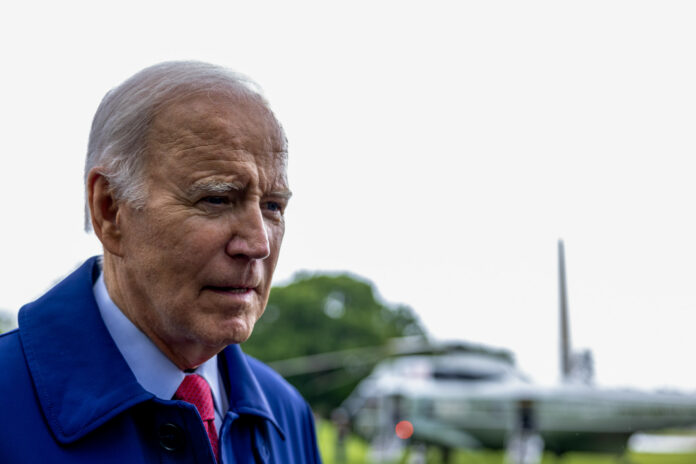Have you noticed the political paradox happening right now? During the first two years of Joe Biden’s presidency, Biden notched massive achievements that any President would envy—and earned an approval rating that would make them faint.
The achievements list is long: the greatest single year of job creation in American history, the lowest unemployment in 50 years, the biggest yearly increase in U.S. manufacturing jobs in 30 years, the most successful American vaccination program in history, lowering prescription drug prices for the elderly up to 75 percent, cutting child poverty by 3 million kids, and massively investing in fixing roads and bridges.
And the political payoff? Biden’s approval at 42 percent—only Trump, Reagan, and Carter were lower at this point of their Presidency—and a Democratic base feeling decidedly “meh.” Among young voters, the supposed strength of the Left, a meager 27 percent of Millennials and 31 percent of Gen Z now choose to identify as Democrats. And the future inner core of the party—young Black voters—is drifting away.
What’s happening? We don’t know for sure, but a strong possibility is that Democrats have disillusioned and confused voters by overpromising and underdelivering.
Tasos Katopodis/Getty Images
Democrats spent recent years throwing political capital at ambitious, flamboyantly-named federal proposals that foundered, went nowhere, or had to be rescued after a torturous whittling process. Think of Medicare for All, American Jobs Plan, American Families Plan, Green New Deal, and Build Back Better.
To be sure, this was probably smart legislative strategy: They ultimately got more out of Congress by not negotiating against themselves. But it turned into terrible politics. All of those gaudy achievements came via an alphabet soup of legislation that no sane human being could follow, and only after enduring months of Fox News pummeling and mainstream media both-sidesing.
I’m a former Congressional staffer who follows this stuff for a living, and I still think an IRA is where I save for retirement, CHIPS pull you over for speeding in California, ARP gets you senior discounts at movies, and BIF is the bad guy in Back to the Future.
What’s more, with the House now in Republican hands and prospects for re-taking unified control looking dim into the future, the run of big federal moves seems to be done.
So here’s another paradox: That’s the best news Democrats have had in a long time.
When the Oakland A’s couldn’t hold on to their big stars after the 2001 baseball season, they were forced to get creative. The answer was to invest in undervalued players with underappreciated skills that got you wins: smaller names that produced big results. The result was a revolution across sports. You might have read about it in Michael Lewis’ Moneyball.
For Democrats, the parallel is obvious: They can’t swing for the fences with big federal bills right now. But they can seize the opportunity to innovate by focusing on the much less heralded but every-bit-as-important state and local level.
Dems have a longstanding blind spot when it comes to taking anything outside the federal realm seriously. For years, they’ve blatantly ignored opportunities to fight for power: 70 percent of local races go uncontested, and in the 2020 election, the Democratic Party spent seven times more on winning the U.S. House than on all state legislative races across the country combined.
But look what happened after a focused effort to take control of statehouses in Michigan and Minnesota, where they already held governorships: Democrats passed more bills in their first month in power than in the last six sessions combined, and they did it on issues like voting rights, reproductive rights, free school lunch, rental assistance and paid family leave—all issues where national Democrats have been stymied.
The best part is that changing focus from the national to the local can have a continuing payoff into the future. As former Ohio Democratic Party Chairman David Pepper shows in his new book Saving Democracy, when local groups and even individuals get activated, even in Republican-held legislatures, they are able to shape bills and stop some of the most extreme stuff.
I’ve also been a state house staffer, and trust me, citizens wield a way bigger influence at the state level than in Congress.
The more Democrats bring these forces to bear, the more they see how much they can accomplish, and the stronger they become. It’s a positive feedback loop that you simply don’t get in Washington.
Does this mean giving up on the federal level? Not at all. But Republicans learned over a decade ago how much they could do by re-imagining where they got the most bang for their political buck. They turned a $30 million investment—a raindrop in the flood of campaign spending—into a wide-scale takeover of statehouses.
Democrats can do the same darn thing now—not just with money, but with attention.
For Democrats, the era of big government is over. And that’s a very good thing.
Matt Robison is a writer, podcast host, and former congressional staffer.
The views in this article are the writer’s own.


